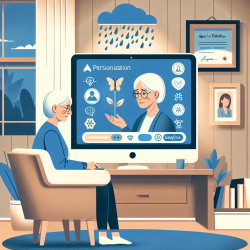Unlocking the Magic of Special Education Credentials
In the realm of education, few areas are as rewarding and impactful as special education. As a Special Education Director, I often find myself in conversations about the critical role that Education Specialist Instruction Teaching Credentials play in ensuring our students receive the tailored education they deserve. Today, let's dive into the fascinating world of these credentials and their significance.
What Are Special Education Credentials?
At the heart of special education is the Education Specialist Instruction Teaching Credential. This credential authorizes educators to provide special education instruction and related services to students whose primary disability falls within the specialty area indicated on the credential. It covers students from preschool through K-12, up to age 22. This credential ensures that educators are equipped to meet the unique needs of students with disabilities in various educational settings.
Where Can Credential Holders Teach?
Special education teachers with this credential have the flexibility to work in a variety of settings, including:
- Correctional facilities
- Home/hospital settings
- Regular classrooms
- Resource rooms*
- Special day classrooms
- State special schools
- Non-public, non-sectarian schools and agencies
- Alternative instructional settings other than classrooms
*Note: Educators with older special education teaching credentials that are no longer initially issued may not serve in resource rooms without a separate authorization for resource.
Appropriate Student Placement and Credential Requirements
One of the most important aspects of special education is ensuring that students are placed in the least restrictive environment possible. This is where the Individualized Education Program (IEP) comes into play. An IEP outlines the necessary services and placements for each student, and it's essential that the special education teacher holds the appropriate authorization to provide these services.
While an IEP may identify multiple areas of need, federal statutes require that students with disabilities be placed in educational programs that align with their primary disability category. However, the IEP team may determine that an alternate placement is more suitable based on assessments and IEP goals. It's the responsibility of the employing agency to ensure that these services are delivered effectively.
The Role of TinyEYE in Supporting Special Education
As a provider of online therapy services to schools, TinyEYE is committed to supporting educators and students in the special education community. By offering innovative solutions and resources, we aim to bridge the gap and ensure that all students have access to the support they need to thrive.
For more information, please follow this link.










